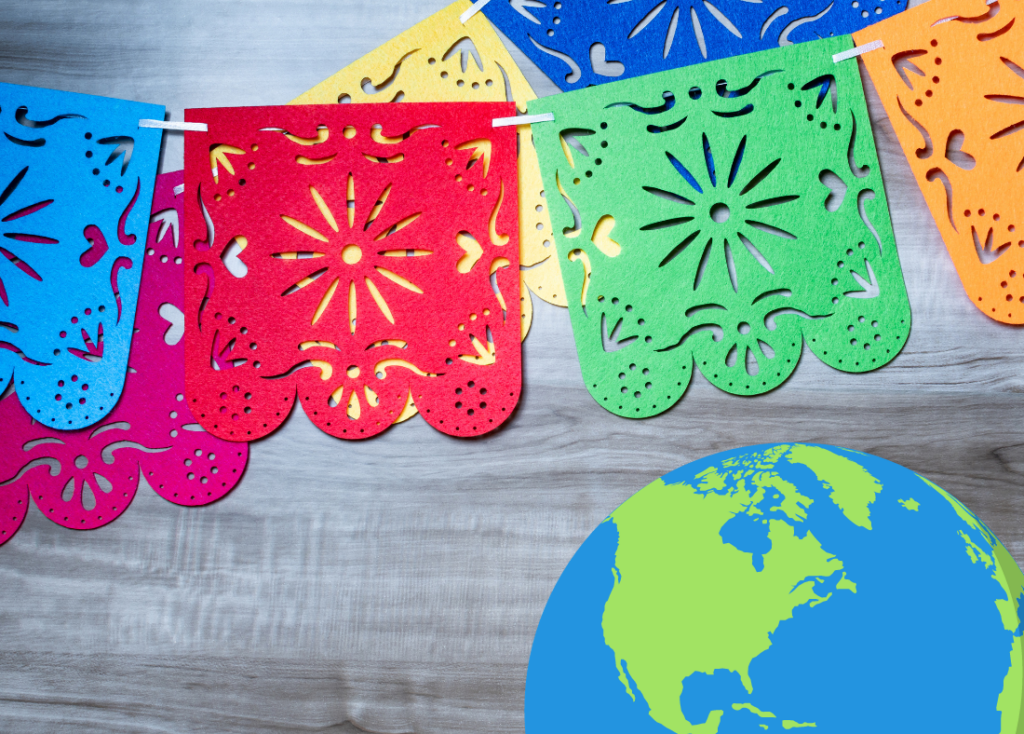By Joshua Piedra, Board Member

Hola! Did you know that September 15th-October 15th is Hispanic Heritage Month in the U.S. To be frank, not many do, especially in latine communities. But why does this month matter to the climate justice movement? Before we have a deeper conversation on local latine history and the climate justice movement, it is important to make some distinctions.
Firstly, people from Central and South America all have different identities, especially those residing in the U.S. Some consider themselves to be Chicano/a/x/e, Latino/a/x/e, Hispanic, or some other combination of various countries. For instance, I consider myself to be a Latino, Chicano, and Mexican-American. However, I don’t consider myself to be a Hispanic. The U.S. government created this terminology as a way to categorize a ton of Spanish-speaking peoples from Central and South America (“Hispanic” is a reference to “Hispanicus”, what the ancient Romans named the Iberian Peninsula of modern-day Spain.) It feels insensitive and disrespectful to solely categorize my culture/language after a country that systemically conquered, enslaved, and murdered the indigenous inhabitants of those very same regions. It also ignores countries in Central and South America that don’t speak Spanish (looking at you, Brazil). While the U.S. government chooses to categorize an entire world region as Hispanic, I choose not to.
Secondly, latines are not a monolith. We all come from different cultures, histories, and beliefs. Even more so, this becomes more complex through the eyes of each generation (for example, some younger people prefer using latine instead of latino/latina as a way to be more inclusive of those who are non-binary.) To say we can celebrate all of our contributions to this country and the world by putting everyone under one month is limiting, to say the least. This is not to say that there isn’t power in joining together in commonality, (even now I am categorizing an entire region of people as “latine” for political reasons), it is however an acknowledgment that what I am going to share is a snippet of a larger conversation of the contributions by latine people.
I digress, why does this month matter to the climate justice movement? Well, let’s take a look at some San Diego history: the birth of Chicano Park and the fight for Bario Logan. I will summarize these events as much as possible but please feel free to learn more about the history at the Chicano Park website. In short, back in 1970, the city, state, and federal governments worked together to create the I-5 and ensured that it would cut through a predominantly latine community, Barrio Logan. Due to outrage, politicians promised to create a park under the freeway as a community center. However, they lied and instead were going to create a Highway Patrol Station. Underestimating the community was their mistake, and Barrio Logan (led by local student activists) came together to protest, have sit-ins, and push their demands for a local park. Note, the public in America was politically shifting at the time, there were more anti-war demonstrations, people of color empowerment organizations, and the cultural revolution was flourishing. Without public support, the local governments conceded and gave into the demands of the community, thus Chicano Park was born. This moment in time is what empowered latine communities in San Diego to demand a part in open spaces, leading to the creation of the Centro Cultural de la Raza, the Logan Heights Family Clinic Center, and more in San Diego.
While these are some awesome achievements, the community continues to face serious environmental health disparities. Barrio Logan/Logan Heights suffers from some of the worst pollution in the entire State of California. As a result, residents experience the highest rates of asthma in all the State of California as well as higher rates of cancer and other diseases. This has been an intentional development as the I-5, and the port were created in these communities because racist politicians chose to harm people of color rather than non-people of color. This is all interconnected with the climate crisis we face today. Uncontrolled modernization led by the fossil fuel industry continues to disproportionately harm communities of color and their irresponsible actions have given us the issues we face now with climate change. Addressing the health of Barrio Logan is addressing the need to confront our climate crisis. The very same community that came together to build a Park is to this day fighting to ensure their residents don’t continue to be harmed by the policies of political and business leaders. Their fight to thrive and not just survive as a community is a fight against climate change. If you would like to honor the struggles of our people, please donate to the Chicano Park Museum, the Centro Cultural de Raza, and any other organizations in San Diego (like SanDiego350 and the Environmental Health Coalition) that are actively centering these most impacted by climate change in the fight for climate justice.
